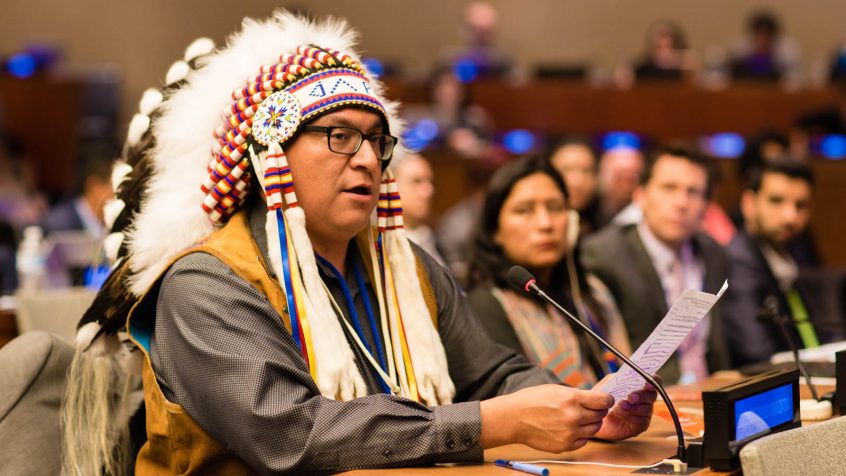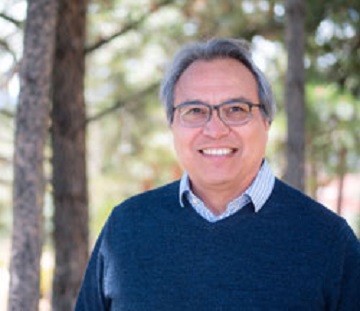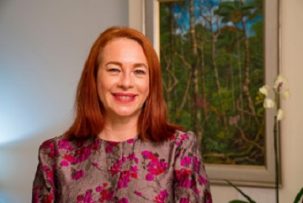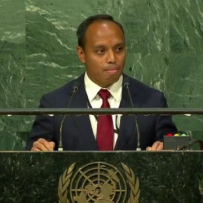
Each year, 9 August commemorates the International Day of the World’s Indigenous Peoples. It is celebrated around the world and marks the date of the inaugural session of the Working Group on Indigenous Populations at the United Nations in 1982.
As part of the commemoration, the Indigenous Peoples and Development Branch – Secretariat of the Permanent Forum on Indigenous Issues/DISD/DESA is organizing a virtual event. Indigenous Peoples, Member States, UN entities, civil society, and the general public are all invited.
The 2021 commemoration of the International Day of the World’s Indigenous Peoples will focus on the theme “Leaving no one behind: Indigenous peoples and the call for a new social contract” to be held on Monday, 9 August from 9 am to 11 am (EST).
Information on registration will be shared soon. Simultaneous Interpretation in English-Spanish and vice-versa is available thanks to the Fund for the Development of the Indigenous Peoples of Latin America and the Caribbean (FILAC).
Background
More than 70 per cent of the world’s population is living in countries with rising income and wealth inequality, including indigenous peoples who already face high rates of poverty and acute socio-economic disadvantages. High levels of inequality are generally associated with institutional instability, corruption, financial crises, increased crime and lack of access to justice, education and health services. For indigenous peoples, poverty and gross inequities tend to generate intense social tensions and conflicts.
Eradicating poverty in all its forms and dimensions and reducing inequality are at the heart of the 2030 Agenda for Sustainable Development. The whole of society — not only governments but also social activists, indigenous peoples, women, academia, scientists — all have a role to play in building and redesigning a new social contract that serves the interest of “We, the peoples”, as per the preamble of the United Nations Charter.
Indigenous peoples’ right to participate in decision-making is a key component in achieving reconciliation between indigenous peoples and States. Therefore, a new social contract must combat the legacy of exclusion and marginalization affecting indigenous peoples — through their meaningful and effective participation and the obtainment of their free, prior and informed consent. Consequently, it will lead to meeting the goals of the 2030 Agenda.
The COVID-19 pandemic has shone a light on the effects of growing inequalities and promoted discussion on the urgent need to rethink a new social contract. A new common sense that will work for all peoples and the planet. It has created a unique opportunity to build back a more equal and sustainable world – one based on genuine and inclusive participation and partnership that fosters equal opportunities for all and respects the rights, dignity and freedoms of all.
For the many indigenous peoples disproportionately impacted by COVID-19 worldwide, plans to build back better and rethink social contracts must include listening to their voices, needs and concerns, obtaining their free, prior and informed consent, and include the collective and individual rights of indigenous peoples recognized in the United Nations Declaration on the Rights of Indigenous Peoples.
Format of the virtual event
The 2021 commemoration of the International Day of the World’s Indigenous Peoples will feature an interactive discussion with two speakers on the distinct elements to be considered when building and redesigning a new social contract that is inclusive of indigenous peoples – where indigenous peoples’ own forms of governance and ways of life must be respected and based on their free, prior and informed consent and genuine and inclusive participation and partnership.
Guest Speakers
 James Anaya has taught and written extensively on international human rights and issues concerning indigenous peoples. He served as the United Nations Special Rapporteur on the Rights of Indigenous Peoples from 2008 to 2014. Currently, he serves as Professor at the University of Colorado Law School at Boulder.
James Anaya has taught and written extensively on international human rights and issues concerning indigenous peoples. He served as the United Nations Special Rapporteur on the Rights of Indigenous Peoples from 2008 to 2014. Currently, he serves as Professor at the University of Colorado Law School at Boulder.
Professor Anaya has advised numerous indigenous and other organizations from several countries on matters of human rights and indigenous peoples, representing indigenous peoples’ groups from many parts of North and Central America in landmark cases before domestic and international tribunals, including the United States Supreme Court and the Inter-American Court of Human Rights. Among his noteworthy activities, he participated in the drafting of the United Nations Declaration on the Rights of Indigenous Peoples and was the lead counsel for the indigenous parties in the case of Awas Tingni v. Nicaragua, in which the Inter-American Court of Human Rights for the first time upheld indigenous land rights as a matter of international law.
Prior to becoming a full time law professor, he practiced law in Albuquerque, New Mexico, representing Native American peoples and other minority groups. Professor Anaya served on the law faculty at the University of Arizona from 1999 to 2016 and on the faculty of the University of Iowa from 1988 to 1999.
 María Fernanda Espinosa Garcés, an Ecuadorian scholar, diplomat, has held many leadership positions within the Government of Ecuador, serving as Minister of Foreign Affairs, Minister of Defense and Minister of Cultural and Natural Heritage. Furthermore, she was the first female ambassador and permanent representative of Ecuador to the United Nations offices in New York and in Geneva. Most recently, Ms. Espinosa served as President of the 73rd Session of the United Nations General Assembly, becoming the fourth woman in history and the first from Latin America and the Caribbean to preside over this body. Ms. Espinosa is currently member of the Strategic Committee of the Science Panel for the Amazon of the Sustainable Development Solutions Network; member of the international Lancet COVID-19 Commission; councilor of the World Future Council; member of the Multi-Stakeholder Steering Committee of the Generation Equality Forum; member of the Political Advisory Panel of the Universal Health Coverage 2030 Movement (UHC2030); fellow of the World Academy of Art and Science (WAAS); member of the Group of Women Leaders for Change and Inclusion (GWL); and Goodwill Ambassador for the Latin American and Caribbean Fund for the Development of the Indigenous Peoples (FILAC).
María Fernanda Espinosa Garcés, an Ecuadorian scholar, diplomat, has held many leadership positions within the Government of Ecuador, serving as Minister of Foreign Affairs, Minister of Defense and Minister of Cultural and Natural Heritage. Furthermore, she was the first female ambassador and permanent representative of Ecuador to the United Nations offices in New York and in Geneva. Most recently, Ms. Espinosa served as President of the 73rd Session of the United Nations General Assembly, becoming the fourth woman in history and the first from Latin America and the Caribbean to preside over this body. Ms. Espinosa is currently member of the Strategic Committee of the Science Panel for the Amazon of the Sustainable Development Solutions Network; member of the international Lancet COVID-19 Commission; councilor of the World Future Council; member of the Multi-Stakeholder Steering Committee of the Generation Equality Forum; member of the Political Advisory Panel of the Universal Health Coverage 2030 Movement (UHC2030); fellow of the World Academy of Art and Science (WAAS); member of the Group of Women Leaders for Change and Inclusion (GWL); and Goodwill Ambassador for the Latin American and Caribbean Fund for the Development of the Indigenous Peoples (FILAC).
Moderator
 Ohorella is an idealist and anteambulo for indigenous peoples. He is indigenous to the Alifuru People of Maluku, with an unshakeable belief in a bright future for all indigenous peoples of the world.
Ohorella is an idealist and anteambulo for indigenous peoples. He is indigenous to the Alifuru People of Maluku, with an unshakeable belief in a bright future for all indigenous peoples of the world.
Mr. Ohorella works to give wings to indigenous peoples and their ideas, that is why everything he says and does is geared towards inspiring and empowering 476 million indigenous peoples so that they can do what inspires them. He uses his many years of experience in indigenous rights advocacy and high-level negotiations to open spaces and create an enabling environment for indigenous peoples at the international level that is built on the right to self-determination.
Resources
- Tackling the inequality pandemic: a New Social Contract for a new era, Secretary-General, the 18th Nelson Mandela Lecture (2020) | EN |
- A/75/255 Report of the Secretary-General on Enhancing the participation of indigenous peoples’ representatives and institutions in meetings of relevant United Nations bodies on issues affecting them (2020)
- United Nations Declaration on the Rights of Indigenous Peoples (UNDRIP)
- E/C.19/2014/11 Report on Permanent Forum on Indigenous Issues (2014) AR| EN | ES | FR | RU | ZH
- E/C.19/2013/13 Study on the rights of indigenous peoples and truth commissions and other truth-seeking mechanisms on the American continent AR | EN | ES | FR | RU | ZH
- E/C.19/2013/10 Study on indigenous women’s political participation at the international, national and local levels AR | EN | ES | FR | RU | ZH
- Dedicated DESA web page on COVID-19 and indigenous peoples
Social media accounts
Facebook: https://www.facebook.com/unpfii/
Twitter: https://twitter.com/UN4Indigenous
Instagram: instagram.com/UN4Indigenous
 Welcome to the United Nations
Welcome to the United Nations